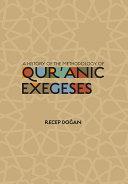Abul ALA Maududi, Javed Ahmad Ghamidi, Abd Allah Ibn Abbas, Pir Meher Ali Shah, Said Nurs , AB? ?An?fa
Please note that the content of this book primarily consists of articles available from Wikipedia or other free sources online. Pages: 27. Chapters: Abul Ala Maududi, Javed Ahmad Ghamidi, Abd Allah ibn Abbas, Pir Meher Ali Shah, Said Nurs, Ab? ?an?fa, Muhammad ibn Jarir al-Tabari, Amin Ahsan Islahi, Al-Suyuti, Abu Mansur Maturidi, Hamiduddin Farahi, Fakhr al-Din al-Razi, Shabbir Ahmad Usmani, Al-Zamakhshari, Al-Qurtubi, Ibn Kathir, Muhammad ash-Shawkani, Al-Baghawi, Ahmad ibn Muhammad al-Tha'labi, Raghib Isfahani, Mahmud al-Alusi. Excerpt: Syed Abul A'ala Maududi (Urdu: - alternative spellings of last name Maudoodi and Modudi) (September 25, 1903) - September 22, 1979)), also known as Molana (Maulana) or Shaikh Syed Abul A'ala Mawdudi, was a Sunni Pakistani journalist, theologian, Muslim revivalist leader and political philosopher, and a major 20th century Islamist thinker. He was also a prominent political figure in Pakistan and was the first recipient of King Faisal International Award for his services to Islam in 1979. He was also the founder of Jamaat-e-Islami, the Islamic revivalist party. Maududi was born in Aurangabad, (presently Maharashtra), India, then part of the princely state enclave of Hyderabad, until it was annexed by India (1948) . Syed Abul A'ala Maududi was born to Maulana Ahmad Hasan, a lawyer by profession. Syed Abul A'ala Maududi was the youngest of his three brothers. His father was the descendent of the Chishti line of saints; in fact his last name was derived from the first member of the Chishti Silsilah i.e. Khawajah Syed Qutb ul-Din Maudood Chishti (d. 527 AH) At an early age, Maududi was given home education, he "received religious nurture at the hands of his father and from a variety of teachers employed by him." He soon moved on to formal education, however, and completed his secondary education from Madrasah Furqaniyah. For his undergraduate studies he joined Darul Uloom, Hyderabad (India). His undergraduate studies, however, we...
Please note that the content of this book primarily consists of articles available from Wikipedia or other free sources online.









